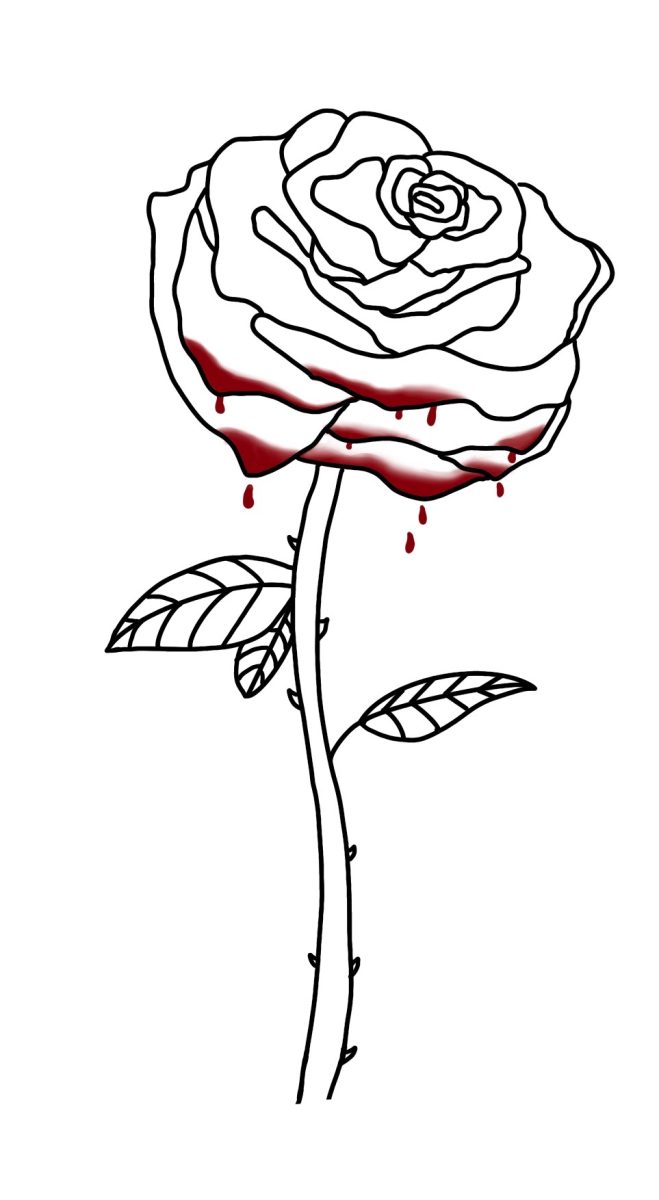Global controversies take center stage in the 2022 World Cup
November 29, 2022
The 2022 International Federation of Associated Football (FIFA) World Cup is in play, and along with the raging fans, amazing players and pride for one’s country, controversies about the ethical side of the tournament itself have been at the forefront. On Saturday, Nov. 26, tension was addressed between Iran’s state media and the United States team when the U.S. displayed an edited version of the Iranian flag on Instagram to show solidarity between the team and protesters in Iran. The flag had no center emblem of Iran in the center, which is meant to represent Iran’s Islamic Republic. This decision was to support women who have been fighting the discriminatory actions of the Islamic Republic by not wearing their mandatory veils, and for the workers fighting for basic human rights in Iran. This incident is not the only aspect that has caused issues in this year’s world cup, as there have been questions about the treatment of migrant workers during the preparation of the tournament in Qatar.
These controversies have been noticed by many fans, including Carlos Demouraneto, a junior who has been following soccer all his life. His dad played professionally in Brazil, and he still considers himself a Brazilian soccer fan today. Demouraneto has noticed the unfair conditions the workers have been faced with while building the infrastructure for the tournament, and recognizes the lives that have been lost.
“The Qatari workers brought people from nearby countries to help them build the World Cup [stadiums], but the problem is they didn’t care about those people. They made them work in temperatures of 100 degrees Fahrenheit without any food or water. Many people died due to the Qatari government not giving anything to help them build the stadium,” Demouraneto said.
The hardships that workers face are due to the Kafala system, used to monitor migrants that work primarily in the construction industry. These systems tie workers to their employers, making it extremely difficult to leave a job, even one that is dangerous. FIFA gave minimal attention to the fact that Qatar did not have the ability to safely create massive infrastructure, did not have significant human resources and that the living conditions for the migrant workers were inhumane.
Senior and varsity soccer player Ben Tabak has been following and observing social issues with this year’s World Cup.
“I know that [approximately 95 percent] of the Qatar population is migrant workers, so if they aren’t being treated properly then there’s definitely a big issue,” Tabak said.
As for the other main controversy, Tabak also acknowledges that the U.S. team took appropriate and professional action in displaying the flag without the Iranian emblem to show the migrant workers that they were supported.
“[The U.S. team] is spreading the message that they care about the causes that are going on,” Tabak said.
Thousands of deaths of migrant workers, which have been blamed on natural causes, remain mysteries today. Human Rights Watch has been following the case and uncovering how workers have no power, cannot escape work and are abused. Employers have confiscated workers’ passports and identification, forcing them to work intense hours without proper wages. Additionally, migrant workers do not have equal labor protection as other workers, leading them to be at a higher risk.
Following COVID-19 and a long four year wait, the soccer community is happier than ever to have the tournament back, but as the World Cup continues, controversy surrounding some of the decisions made by the Qatari government persists.






